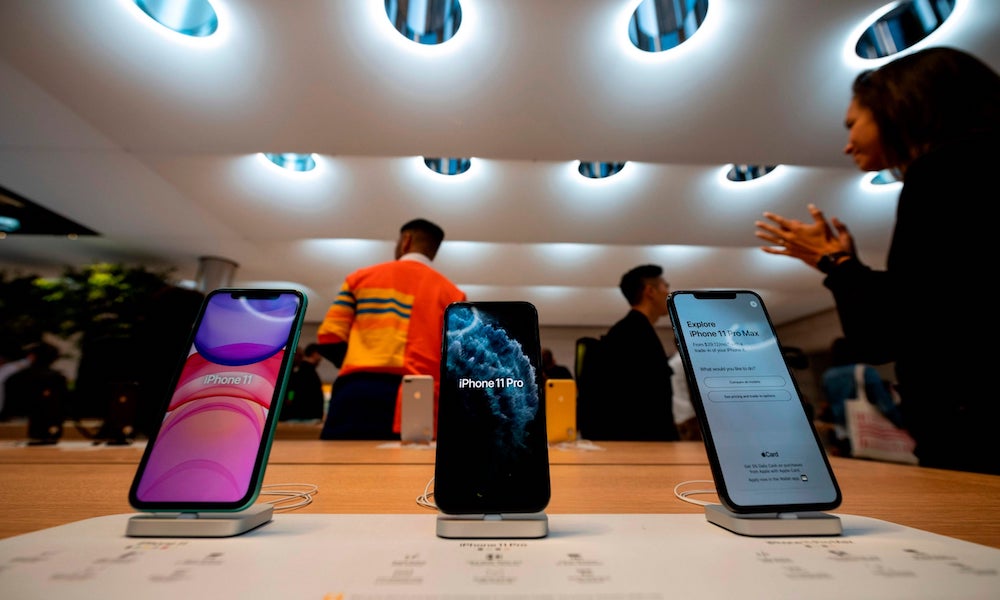Apple Beats out Samsung to Reclaim Title as World’s Biggest Smartphone Maker
 Credit: Standard
Credit: StandardToggle Dark Mode
Earlier this week, Apple announced stunning results during its fourth-quarter earnings report for 2019, with every indication that the iPhone is returning to its former glory, with revenues of $56 billion in sales and an 8% increase from the same period in 2018.
In fact, it was the second-best quarter in history for iPhone revenue, next to the quarter two years ago that saw the release of the original iPhone X, and it turns out that it’s been enough to put Apple back on top in the smartphone industry.
According to a report from Strategy Analytics, cited by CNET, sales of the iPhone 11 allowed Apple to grab almost 19 percent of the market, which put it ahead of Samsung by half a percent, making it once again the best-selling smartphone in the world.
The secret sauce for Apple’s success this year has clearly been the iPhone 11, as Strategy Analytics analyst Neil Mawston points out. This was also accompanied by stronger demand in general in Asia and North America, but that demand mostly went to Apple, with a report earlier this month showing that the iPhone completely dominated Christmas, with 9 out of the 10 top smartphone activations being various iPhone models, and the iPhone 11 at the top of the list, followed closely by last year’s iPhone XR.
The iPhone 11 has similarly turned things around in China for Apple, which was a market that the company had almost entirely priced itself out of with its much more premium iPhones. The iPhone XS and iPhone XS Max largely flopped in China in 2018 and early 2019, while the iPhone XR had slightly better uptake, but still suffered a bit due to the perception that it was a second-class citizen next to the much more desirable iPhone XS.
With the release of the 2019 iPhone lineup, however, Apple wisely corrected course by changing its naming to emphasize that the iPhone 11 model was the standard, and a power unto itself, while the iPhone 11 Pro was the higher-end version.
While Apple doesn’t release unit sales numbers anymore, Strategy Analytics estimates that it sold approximately 70.7 million handsets, while Samsung only sold 68.8 million across its entire lineup.
That’s not all, however, as Samsung also appears to have suffered in other areas, with CNET noting that the small boost that it did get in its mobile business wasn’t enough to make up for losses in its components operations, where memory chip prices fell and display panel orders had a weaker showing.
Meanwhile, while the iPhone rallied, Apple also saw growth in just about every other significant area of its business, including services and wearables, where Apple Watch sales have been skyrocketing, thanks to the older — and now more affordable — Series 3 model, and of course Apple’s AirPods and AirPods Pro, which by all reports have been flying off the shelves.
Most analysts are also expecting things to heat up even further later this year, when Apple releases its first 5G iPhone, which by many reports is expected to dominate the 5G market, overtaking Samsung’s early lead in that area as well. But even if Apple doesn’t hold onto the lead in smartphones over the longer term, it won’t likely matter much with everything else that Apple has going on, but the current results certainly prove that, despite the dire predictions of some analysts, the iPhone won’t be out of the count for a while.






